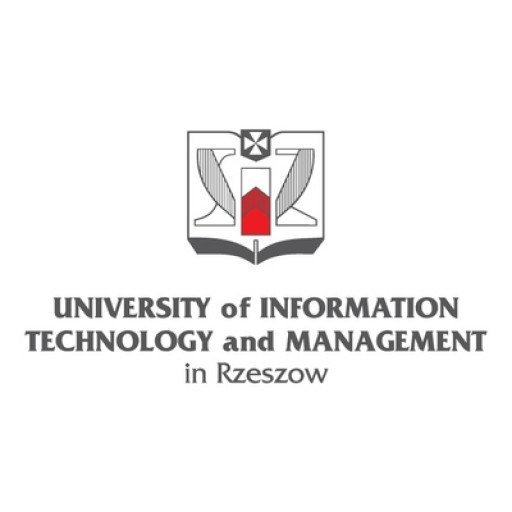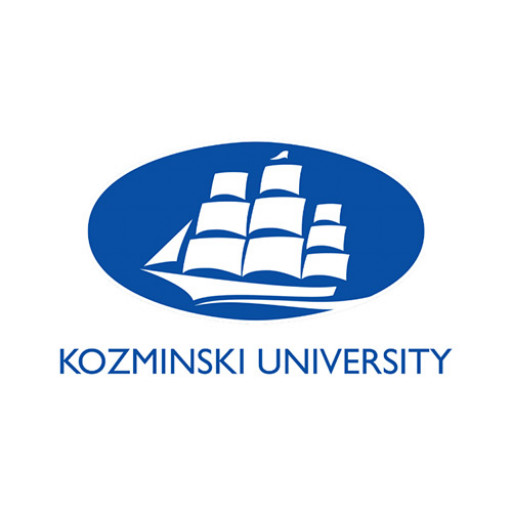Management at the University of Ecology and Management offers a comprehensive education designed to prepare students for leadership and administrative roles across various sectors. The program emphasizes the development of essential managerial skills, strategic thinking, organizational understanding, and effective communication, providing students with a solid foundation to succeed in dynamic business environments. Throughout the course of study, students engage with core disciplines such as economics, marketing, human resource management, finance, and operational planning, gaining both theoretical knowledge and practical experience through case studies, projects, and internships. The curriculum is tailored to align with current industry demands, incorporating modern management tools, digital technologies, and sustainable practices to prepare graduates for the challenges of the modern economy. The program also emphasizes ethical decision-making, leadership development, and cross-cultural competence to foster well-rounded professionals capable of managing diverse teams and complex projects. Faculty members are experienced academics and practitioners who bring real-world insights into the classroom, ensuring that students receive relevant and up-to-date education. Graduates of the Management program are equipped to pursue careers in a variety of fields including corporate management, public administration, consulting, entrepreneurship, and non-profit organizations. The program encourages innovation, critical thinking, and continuous improvement, preparing students not only to adapt to change but to drive it. With a wide array of extracurricular activities, workshops, and networking opportunities, students are supported in their professional development and are well-positioned to succeed in competitive job markets. The education at the University of Ecology and Management aims to cultivate responsible leaders with a global perspective, committed to sustainable development and societal progress.
Management program at the University of Ecology and Management is designed to provide students with comprehensive knowledge and practical skills necessary for effective organizational leadership and strategic decision-making. The curriculum covers a wide range of topics, including organizational theory, strategic management, marketing, financial management, human resource management, and entrepreneurship. Students will explore modern management practices and develop their ability to analyze complex business environments, formulate strategic solutions, and lead teams successfully. The program emphasizes a multidisciplinary approach, integrating ecological and environmental considerations into traditional management fields to prepare future managers for sustainable development challenges.
Throughout their studies, students will engage in a variety of learning activities such as lectures, case studies, group projects, and internships. Practical training provides real-world experience in managing organizations across different sectors, fostering leadership qualities, problem-solving skills, and ethical decision-making. The curriculum is regularly updated to reflect current trends and innovations in management sciences, ensuring graduates are well-equipped to meet the demands of dynamic markets. Students also have opportunities to participate in international exchanges and collaborative projects, broadening their global perspective and cultural awareness.
The program aims to develop critical thinking, communication competencies, and entrepreneurial mindset among graduates. Upon completion, students will be prepared for managerial positions in various industries, including ecology, education, public administration, and private enterprise. The faculty consists of experienced professionals and academics dedicated to mentoring students and supporting their professional growth. Graduates of the Management program at the University of Ecology and Management are expected to make valuable contributions to their organizations and actively participate in sustainable development initiatives, reflecting the university’s commitment to ecological and social responsibility.
Program requirements for the Bachelor's degree in Management at the University of Ecology and Management typically include the successful completion of core and elective courses in management, economics, organizational behavior, marketing, finance, and business law. Applicants generally need to have a secondary education certificate or equivalent, with a focus on mathematics and social sciences preferred. Proficiency in English may be required or recommended, especially for international students. During the course of study, students are expected to complete practical training and internships to gain real-world experience. Additionally, students must pass final examinations and a thesis defense to graduate. Some programs may also require entrance exams or interviews to assess applicants' suitability for the management field. Participation in seminars, workshops, and project work is encouraged to develop analytical, communication, and leadership skills essential for managerial roles. The curriculum is designed to ensure that graduates acquire comprehensive knowledge of modern management practices, strategic planning, and organizational development. Overall, program requirements aim to prepare students for successful careers in various sectors of the economy by equipping them with both theoretical knowledge and practical skills necessary to meet the demands of today's dynamic business environment.
The financing of the Management program at the University of Ecology and Management is structured to ensure accessibility and transparency for prospective students. The program offers a variety of funding options, including state-sponsored scholarships, educational grants, and private financial aid, designed to support students throughout their studies. Students eligible for budget places can benefit from government-funded tuition, which covers the full or partial cost of their education, subject to academic performance and competition results.
In addition to government funding, the university provides opportunities for students to secure scholarships based on academic merit, leadership qualities, or social need. These scholarships aim to motivate high-achieving students and support those facing financial challenges. Moreover, the university collaborates with various organizations and companies to offer sponsorship programs, internships with stipends, and partnership funds that help cover tuition fees and living expenses.
Students can also explore external sources of financing such as student loans, programs offered by regional and national authorities, or educational grants from non-profit foundations. The university provides comprehensive guidance and counseling services to assist students in identifying suitable funding options, submitting applications, and fulfilling the necessary requirements.
For international students, the university may offer specific scholarship programs and bursaries to facilitate their studies, along with assistance in obtaining financial support from their home countries or international organizations. The institution emphasizes a transparent and inclusive approach to financing, ensuring that financial barriers do not prevent talented and motivated students from enrolling and succeeding in the Management program.
Tuition fees for the program are competitive and are adjusted periodically in accordance with inflation and economic conditions. The university maintains detailed information on cost structures, application procedures, and deadlines on its official website and admissions office. Overall, the financing system at the University of Ecology and Management aims to provide sustainable support for students at different stages of their educational journey, promoting equal access and academic excellence.
Management at the University of Ecology and Management is a comprehensive undergraduate program designed to equip students with essential knowledge and practical skills in the field of business administration, organizational management, and strategic planning. The curriculum is structured to provide a solid foundation in economic theory, management principles, marketing, finance, and human resource management, ensuring graduates are well-prepared to meet the demands of various sectors within the economy. The program emphasizes a multidisciplinary approach, integrating environmental considerations and sustainable practices into traditional management studies, reflecting the university's focus on ecology and sustainable development. Students have the opportunity to engage in case studies, internships, and project-based learning to apply theoretical knowledge in real-world scenarios. The faculty comprises experienced professionals and academicians dedicated to innovation and excellence in teaching. The program also offers opportunities for international exchange and collaboration, fostering global perspectives and networking with peers from different countries. Upon graduation, students can pursue careers in corporate management, public administration, environmental enterprises, consulting firms, and non-governmental organizations, among others. The university aims to develop not only business acumen but also ethical decision-making and social responsibility, preparing students to be effective and responsible leaders. The management program at the University of Ecology and Management is constantly updated to reflect the latest trends and challenges in the global economy, including digital transformation, corporate social responsibility, and environmentally sustainable practices. This ensures graduates are competitive and relevant in today’s dynamic job market. The program also offers various specializations and elective courses to tailor education according to individual interests and career goals, providing a flexible and personalized learning experience. Overall, the management program at the University of Ecology and Management combines academic excellence with practical training, aiming to cultivate versatile professionals who can contribute effectively to the development of sustainable and innovative organizations.






